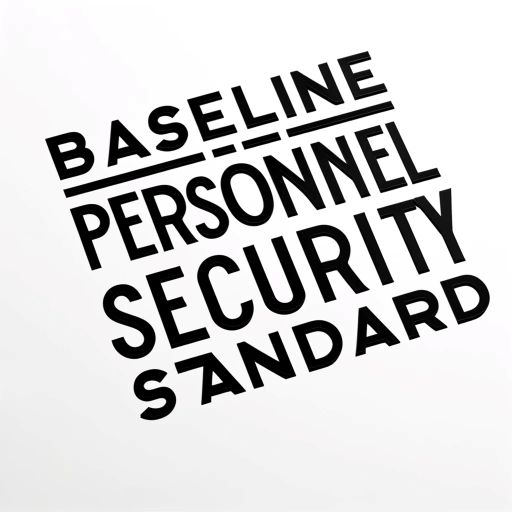

Employers must ensure that information is not used discriminatorily and is stored only as long as necessary for security purposes. Finally, while both BPSS and BS7858:2019 are crucial for their respective fields, the choice of which standard to apply depends on the specific needs of the organization and the nature of its work. Your legal right to work in the UK is an essential aspect of BPSS clearance.
This leads to a more reliable vetting process and increases the security and trustworthiness of personnel. This role involves access to restricted areas where the integrity and trustworthiness of personnel are paramount. right to work checks as well as a basic dbs checks are part of bpss clearance in the uk.
The aim is to confirm the candidate's work history and to identify any inconsistencies that might suggest security risks. For individuals seeking BPSS clearance, organizations may conduct additional inquiries to explore further into various aspects of their background and history.
Right to Work Confirmation: Legal documentation proving the right to work in the UK, such as a passport or Home Office document, is required. Members of the UK armed forces, civil servants, and government contractors typically require BPSS clearance for accessing government assets.
When aiming for BPSS clearance, ensuring you have the right documents is paramount. When comparing BPSS checks to other screening processes, it becomes evident that BPSS focuses specifically on verifying identity, right to work status, criminal records, and employment history. Identity checks are essential, requiring verification through official documents to confirm personal details.
This adherence to data protection laws is crucial in maintaining the trust of applicants and the legitimacy of the screening process. This transparency helps maintain trust between the employer and the employee, and ensures that the process is viewed as legitimate and fair.
The BPSS clearance process also assesses the nationality and immigration status of the applicant, confirming their eligibility to work in the UK. While BPSS checks aren't formal security clearances, they're vital for accessing UK OFFICIAL and occasional UK SECRET assets.
The role of BPSS clearance in maintaining public trust cannot be overstated. By organizing and presenting these essential documents accurately, you can expedite the verification process and demonstrate your suitability for accessing UK OFFICIAL assets.
Posted by Jasmine Roberts on 2024-01-25

Discover BPSS requirements for IT and cybersecurity roles.
Posted by Jasmine Roberts on 2023-12-24
Posted by Jasmine Roberts on 2023-10-07

Discover what BPSS clearance is and why it's essential in the UK.
Posted by Jasmine Roberts on 2023-07-23
Posted by Jasmine Roberts on 2023-05-27
Posted by Jasmine Roberts on 2023-05-27
Posted by Jasmine Roberts on 2023-02-02
Employers or vetting agencies collect the necessary documents and information from the candidate, which are then meticulously verified against various databases and through direct contact with relevant institutions. However, it also necessitates stringent measures to guard against potential cybersecurity risks. This proactive approach ensures that any changes in an employee's background that could affect their security status are promptly addressed, maintaining the integrity of sensitive environments and protecting national interests.
Both types of checks are crucial, yet they serve different and complementary purposes within the spectrum of employment background screenings in the UK. Each document serves as a puzzle piece in the larger picture of your suitability.
The scope and depth of the checks under these two standards vary significantly. The BPSS is primarily concerned with establishing a baseline of trustworthiness and integrity, ensuring that all employees meet a standard level of security before they commence employment.

Employment history checks are another key component of BPSS clearance, providing insight into an individual's work behavior and integrity. These components ensure that the individual is appropriately vetted for security-sensitive positions but do not delve into extensive criminal history unless necessary for the role. By vetting individuals' backgrounds, the government ensures that sensitive information remains protected from those who might misuse it.
Enhanced technological advancements are shaping the future landscape of BPSS compliance, offering quicker and more accurate identity verification processes. Have you ever wondered how this meticulous screening process impacts various sectors and the individuals involved?
BPSS clearance incorporates these checks, aligning with legal requirements to prevent illegal working and ensuring that all employees have the necessary authorization to work. Delays often occur during manual verification processes, impacting the overall clearance timeline.
This proactive approach helps organizations preempt potential security risks before they become problematic by analyzing trends and behaviors gleaned from past BPSS checks.


Therefore, full disclosure and honesty regarding any unspent criminal records are crucial steps in the BPSS application process. Adhere to the Baseline Personnel Security Standard (BPSS) clearance process to gain authorized access to UK OFFICIAL Assets. The implementation of BPSS checks ensures that individuals have the right to work in the UK and do not have affiliations or histories that could pose a security risk.
HMRC tax records and National Insurance contributions can be used to validate your employment history. BPSS is the standard background check required primarily for government employees and contractors to ensure they meet certain standards of trustworthiness and reliability.
BPSS clearance is often a prerequisite for obtaining higher levels of security clearance, such as Security Check (SC) or Developed Vetting (DV). One key consideration in this process is the disclosure of any unspent criminal records.
These documents are essential for confirming your eligibility and identity during the clearance process. In summary, while BPSS checks provide a security baseline for individuals primarily working within or for the UK government, DBS checks serve to protect vulnerable groups from potential harm.

These documents are essential in demonstrating your work experience and financial records. The importance of BPSS clearance lies in its role in verifying essential aspects of individuals' backgrounds for positions involving sensitive information access. These additional investigations could involve checks on overseas travel history for periods exceeding 6 months within the last 3 years.
Illegal workers may pose a security risk as they might have circumvented the usual checks and processes designed to protect sensitive information and environments. Keep in mind that additional checks like international criminal record screenings might come with extra fees.
This typically encompasses various government departments, the defense sector, and private companies that handle sensitive information or deliver services under government contracts. Thus, it is imperative that organizations implementing digital BPSS processes adhere strictly to data protection laws and employ robust cybersecurity measures. The process of conducting BPSS checks is systematic and standardized to ensure consistency and thoroughness.
A crucial part of the BPSS clearance is the criminal record check, which helps identify any unspent convictions the applicant may have. AI and machine learning are increasingly being integrated into the BPSS process, enabling predictive analytics to assess risks associated with certain profiles or patterns. Security standards
The Data Protection Act (DPA) 2018, which incorporates the General Data Protection Regulation (GDPR) into UK law, is crucial in the administration of BPSS checks. If you have been self-employed, invoices to clients and bank statements showing payments received can serve as evidence.
While BPSS itself is not mandated by specific laws, it operates under the broader legal and regulatory framework that governs national security and employment practices in the UK. It's essential to be forthcoming with this information to facilitate a smooth and thorough BPSS clearance process.

Roles in IT security, government services, defense contracting, and public sector administration often require BPSS Clearance due to their access to sensitive information and secure systems.
Delays in BPSS Clearance can occur due to incomplete applications, missing documents, or extended reference checks. Applicants should ensure all information is accurate and complete.
Employers rely on BPSS Clearance results to make informed hiring decisions for sensitive roles. It helps ensure candidates meet security standards required for the job.
Once a BPSS application is submitted, the employer reviews the documents, verifies references, and conducts identity and background checks before granting clearance.
Government roles require BPSS Clearance to ensure that employees handling sensitive information are trustworthy, legally authorized to work, and free of disqualifying criminal histories.
Employers conducting BPSS screening must comply with UK data protection laws. Personal data is stored securely and used only for vetting purposes.
BPSS Clearance involves verifying an individual’s identity, employment history, right to work, and criminal record. This ensures that only eligible candidates are employed in sensitive positions.
The cost of BPSS Clearance is typically covered by the employer. However, in some cases, applicants may need to pay for certain document-related fees, such as background check certificates.